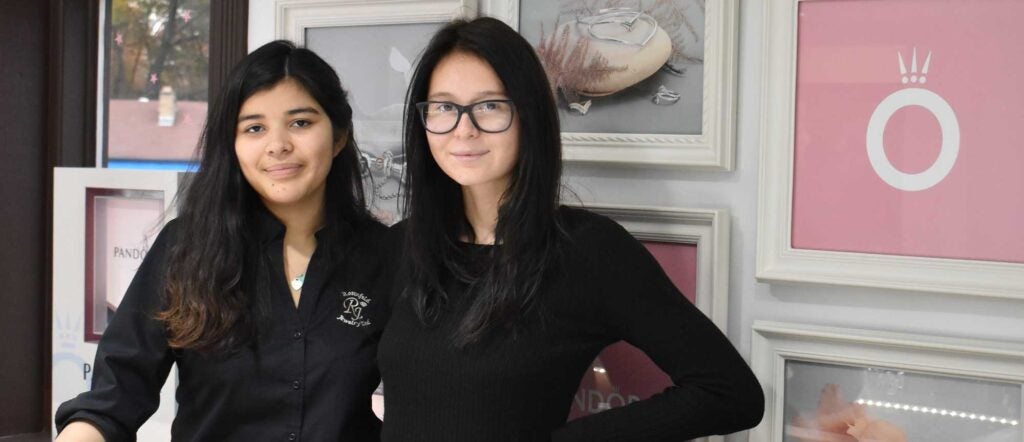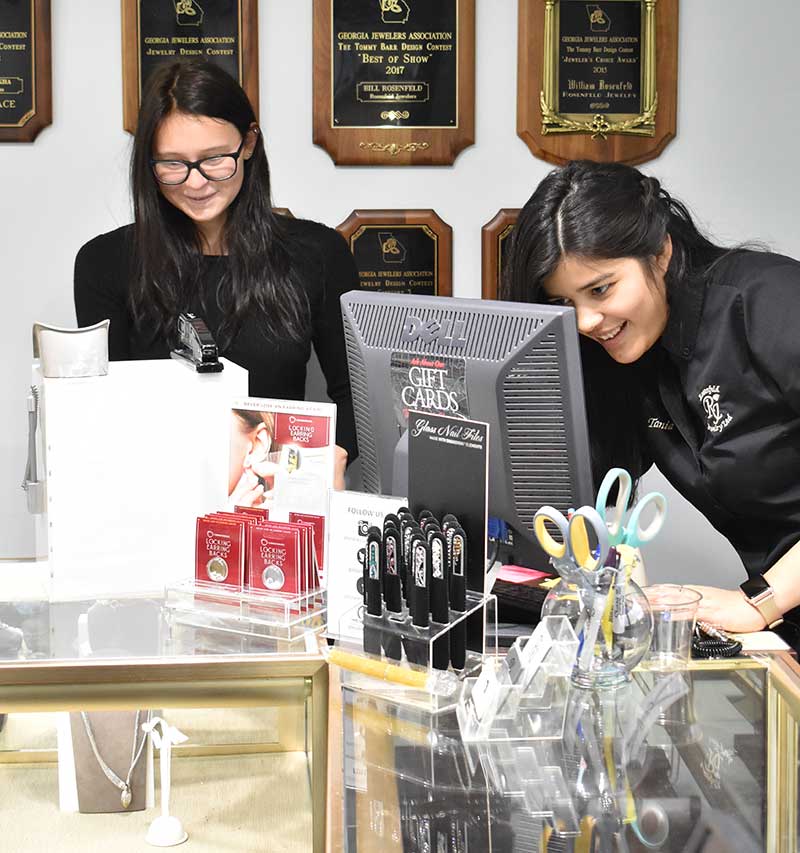InTucker Magazine
December 2019
Life Lessons
Tucker High Students Gain Real World Experience in Work-Based Learning Program

Erica Bower walks the halls of Tucker High School just like any other senior. As she counts down the days to graduation, Erica’s mind jumps between any number of topics: friends, classes, extracurricular activities, her after-school job. Unlike many of her classmates, Erica is double-dipping with that after-school job; she’s getting paid and receiving class credits as part of Tucker High’s Work-Based Learning Program.
“I had a friend who did Work-Based Learning last year,” Erica says. “You get away from school and make money, so your parents don’t have to pay for everything.”
To make it work, Erica attends classes, then leaves school by 1:30 to head across the street to her part-time job at Rosenfeld Jewelers. She works about a dozen hours a week doing everything from paperwork to getting hands-on with customers.
“I hate sitting in class, trying to focus. Here at work, I’m always doing something, moving around,” Erica says. “One of my weaknesses is I’m actually really shy, so when I had to call customers and talk to them, I was so nervous. It’s been a big confidence builder.”
Work-Based Learning is a program available to juniors and seniors around the State of Georgia, and it has been especially popular here in DeKalb County. Jobs can range from working at Chick-fil-A to Stone Mountain and even daycare centers. According to the DeKalb County School District website, “Work-Based Learning Programs are structured educational experiences that integrate classroom learning (school-based) with productive, structured work experiences (work-based), related to a student’s career goal.”

To stay in the program and have the chance to gain class credit, students must keep their grades up in academic classes, meet the school’s behavioral standards and demonstrate basic job skills like punctuality. The program is not designed to be a substitute for college, but some students have found an early entry into the workforce to be the best way to launch their post-high school career.
Tania Vasquez is one of those students. A 2017 graduate of Tucker High, Tania entered the Work-Based Learning Program as a junior. She took on a part-time after-school job in customer service. It was a situation that forced her to step outside of her comfort zone.
“I’m a very shy person,” Tania recalls, “but when I was here in the store, relating to customers, people started coming back and asking for me. I shocked myself working in the sales department.”
After more than a year in the Work-Based Learning Program, she had a big decision to make: head to college or get a full-time job. When she chose the latter, she says her family was immediately supportive.
“My parents saw how iffy I was about a career path. They said, ‘She’s making money and learning. This is okay’,” Tania recounts, adding, “I don’t like studying. [The job] is hands on. You’re not sitting in a classroom and reading textbooks.”
In a case of everything coming full circle, Tania’s boss told her earlier this year that the company was taking on a Work-Based Learning student. He asked her to mentor the young lady, showing her the ropes and getting her comfortable with a role in customer service.
That student was Erica Bower.
“I teach Erica to be open and welcoming to customers,” Tania says of her Rosenfeld co-worker. “I want her to feel like I’m her friend and she can come to me with anything.”
Erica admits that she has no plans to follow in her mentor’s footsteps and turn her Work-Based Learning assignment into a full-fledged career. She’s more interested in college life, where she hopes to play soccer and study biology. But, as she weighs her college options, she says there’s one more very tangible takeaway from the experience.
“I didn’t know anything about jewelry. It’s been really fun and interesting learning about gems,” she says. “If nothing else, this has opened my eyes to when I get married…now I know you get the good engagement ring.”
Thanks to the Work-Based Learning Program, she and her classmates are also learning that some of the best education can happen outside of the walls of the school.

